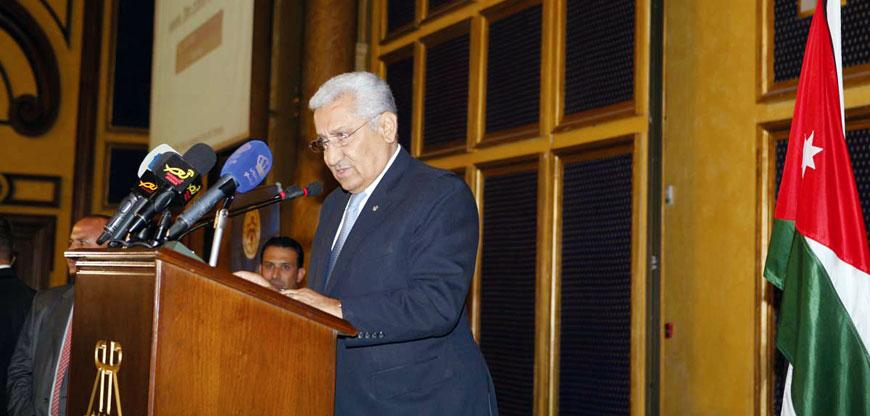You are here
Unifying exams for grades 7-11 to bridge gap between students — ministry
By Dana Al Emam - Feb 01,2015 - Last updated at Feb 01,2015

AMMAN — The Education Ministry seeks to bridge the gap between students’ academic performance at private and public schools, an official said on Sunday.
Education Ministry Spokesperson Walid Jallad said the ministry is studying a proposal to unify examinations for grades 7 to 11, in addition to the initial General Secondary Certificate Examination (Tawjihi) tests, which are currently prepared by each school.
In a phone interview with The Jordan Times, Jallad added that the idea behind the plan is to expose students to the ministry’s examinations for a duration that is enough to prepare them for Tawjihi and guarantee that they are eligible to sit for the exam.
“The ministry is seriously considering unifying Tawjihi experimental tests to guarantee equal opportunities for all students and to provide a true evaluation of their academic performance,” he said.
It is “illogical” for students at private schools to score 99 out of 100 in an experimental test, while in official exams they score as low as 50 per cent, Jallad noted.
The plan, if endorsed, also seeks to “evaluate the performance of teachers and school administrations”, the official said.
“We sensed a gap between private and public schools concerning the exam questions, correction process, timing and abidance by the ministry’s directions,” he said.
Over 90 per cent of students who are banned from sitting for Tawjihi exams for exceeding the allowed absences are enrolled in public schools, according to Jallad, who added that most private schools do not abide by the ministry’s absence regulations.
“The policy under study will enforce examination regulations on all students,” he said, highlighting that the unified exam questions will be set with the variation of students’ academic abilities taken into consideration.
If this projected plan is implemented, the ministry will not bear extra expenditures, Jallad explained, noting that the authorities will send the questions to schools to print on paper they would normally use.
On Saturday, Education Minister Mohammad Thneibat formed a committee comprising members from several education departments in public, military and UNRWA schools to study the plan and refer its outcomes to the ministry within a week.
If panel members agree on the need to implement the plan, the ministry will refer it to heads of educational directorates for their feedback, Jallad said.
Meanwhile, former education minister Ibrahim Badran said examinations do not change the quality of education.
He said that he expected students to memorise the material —rather than comprehend it — in order to pass the exams if the ministry’s plans are implemented.
Badran argued that giving the ministry the authority to hold final exams for grades 7 to 11 will “weaken the role of teachers”.
“What we need is to develop students’ behaviours and their cognitive, analytical and critical skills,” he told The Jordan Times over the phone on Sunday.
Badran called for rehabilitating teachers and school principals as well as developing curricula and the educational environment.
He also stressed the need to engage students in extracurricular activities to fundamentally elevate the level of education.
Related Articles
AMMAN — The unified Education Ministry exams planned for sixth and ninth graders will not be similar to the General Secondary Certific
AMMAN — A total of 320,000 sixth and ninth graders will sit for unified exams in selected subjects starting Wednesday.Although the decision
AMMAN — No student passed Tawjihi at 338 public schools and 11 private schools this summer session, Mohammad Abu Ghazleh, head of the techni















